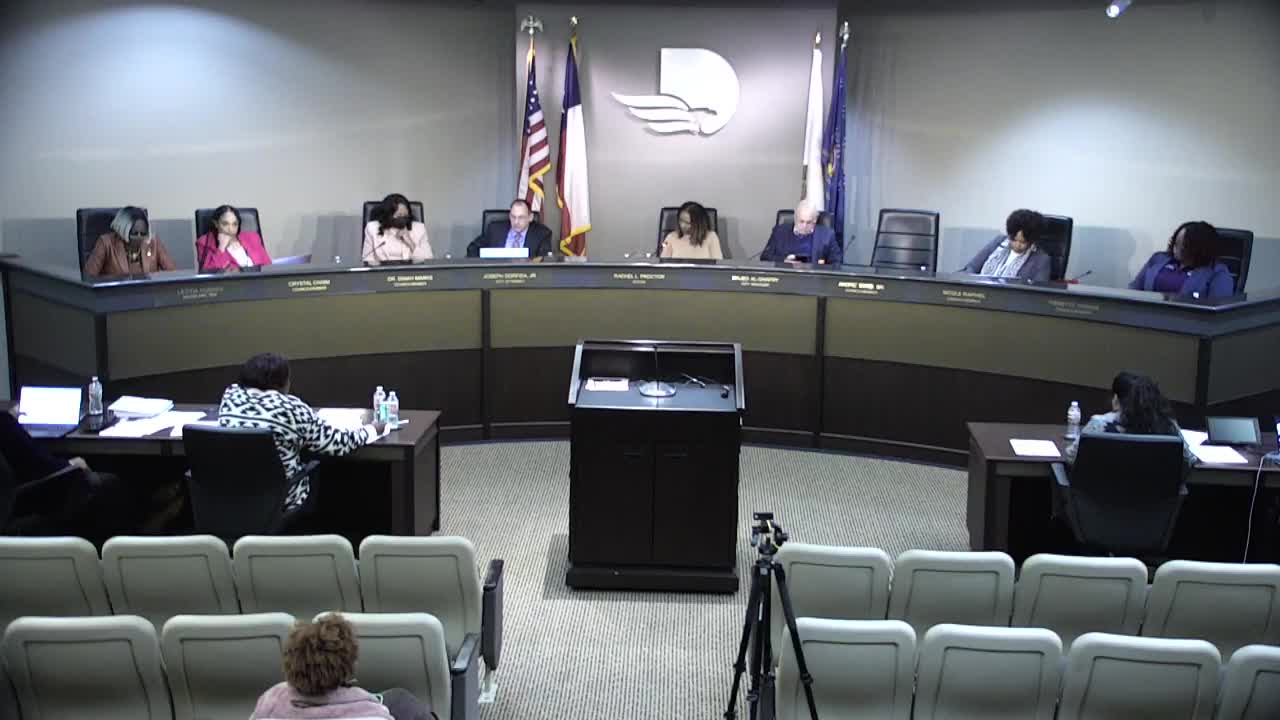Council hears report on rental registration, seeks more data on absentee‑landlord compliance and liens
Get AI-powered insights, summaries, and transcripts
Subscribe
Summary
Police and code enforcement staff briefed council on the city’s rental‑registration program and inspection outcomes; council members asked for further detail on unpaid code liens and asked staff to return with multi‑year data on enforcement and collections.
City staff reviewed DeSoto’s rental registration program and inspection activity on Jan. 7, telling council that the city currently lists about 2,018 rental properties in its database and that inspections are carried out annually.
Chief Joe Acosta of the DeSoto Police Department — who presented the program overview — told council the program accepts online, in‑person and mailed registrations and that a one‑time $10 registration fee applies. "Inspections of rental property are carried out. Inspections are annual," Chief Acosta said. He also noted that the registration form collects owner and property‑manager contacts so the city has a local point of contact for each rental.
Nut graf: Several council members asked staff to return with more detail on outstanding liens and how much the city has recouped from enforcement of rental‑related violations. They also discussed outreach and whether tenant‑focused materials should be added to upcoming neighborhood engagement events.
Key figures and process points cited by staff
- Registered properties: staff reported 2,018 rental properties on file, of which 1,858 had been registered and 160 remained pending in the city’s records.
- Compliance referrals and corrective work: Staff said 268 properties required contractor‑performed corrections during the reporting period and that the corrective work cited represented approximately $4,109 in contracted remediation costs in the sample presented; staff said the majority of those owners were out of town.
- Enforcement tools: Council was told the city may issue citations for unregistered rentals, charge for corrective abatement and place a lien on the property if bills are not paid; liens are collected when the property is sold or through enforcement collections.
Council requests and follow up
- Council asked staff for a multi‑year report (staff offered to return with data covering the last five years) detailing liens, amounts outstanding and recovery rates tied to rental enforcement.
- Members asked staff to develop tenant‑facing materials and outreach at upcoming Neighborhood Collaboration meetings, water‑bill notices and other communications to improve voluntary compliance and awareness of tenant rights and registration requirements.
What staff said they will do: Staff agreed to provide the requested five‑year lien and collections history, and to prepare outreach content for tenants and property owners to distribute at neighborhood meetings and via utility bill or online channels.
